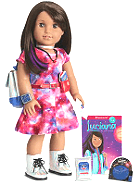
Export Services
{re}Branding
Branding Services for the American Market: ExportUSA adapts, or {re}adapts your product and prepares it for the American market
https://www.exportusa.eu/re-branding-exportusa.php (+1) 718-5225575
(+1) 718-5225575
To impact future consumers, brands need a clear mission. Many established brands are struggling: by offering their products primarily to an adult or elderly consumer base, they risk being perceived as irrelevant by younger audiences, thereby jeopardizing their longevity in the coming years.
Millennials are the largest generation in history. Ignoring this consumer group could lead to a brand's extinction. Some brands, by their nature, may struggle to appeal to younger consumers. In certain cases, products are particularly relevant to older demographics, such as specific pharmaceuticals. Additionally, cultural mega-trends in America, like the declining appeal of smoking among youth (affecting brands like Marlboro), pose ongoing challenges.
Large American multinationals are often seen as sophisticated marketing entities, developing brands integral to many consumers' lives. However, Johnson & Johnson, globally recognized among the top 10 influential marketing companies, ranks 40th among Millennials, despite offering products suitable for all ages.
Similarly, Procter & Gamble ranks 12th among Boomers but drops to 103rd among Millennials in America—an enormous disparity, even with P&G's annual advertising spend exceeding $7 billion (including efforts targeting Millennials).
Leading the way are tech and web companies like Twitter, Snapchat, PayPal, Spotify, Uber, and Kickstarter. Additionally, "physical" brands such as Starbucks, Honest Company, Chipotle, and H&M are performing well. What should brands aiming to stay relevant with Millennials do? They should offer more relevance. Successful brands often have a clear mission. Despite being only six years old, Honest Company stands for transparency and healthy families, ranking 34th among Millennials (84th among Boomers), significantly outperforming established brands like Pampers (at 76th).
This reflects a broader shift: the global American brand Procter & Gamble, which generates over $8 billion in annual sales, has been outpaced by a Millennial-focused brand with clearer, more evident values that resonate deeply with Millennial lifestyles. Similarly, Starbucks has laid a solid foundation for building healthy communities by supporting ethical sourcing and sustainability initiatives, enhancing its appeal among younger consumers. All these efforts helped Starbucks reach the 25th position among Millennials (111th among Boomers).
However, P&G's “Like A Girl” campaign, which championed the potential of young girls, gained widespread acclaim among Millennials, ranking as the 29th most popular brand (Boomers: 99th). Essentially, Millennials in America care about social issues much more than previous generations, necessitating a new marketing approach for companies seeking connection with this demographic.
Having a strong and clear mission isn’t the only way to meet Millennials’ need for effective communication. Pampers, for example, committed to combating neonatal tetanus, but perhaps too few Americans were aware of this initiative. Young people, in particular, seek impactful brands capable of making a difference. Engaging with younger individuals who prioritize these values creates a virtuous cycle for brands, leading to greater relevance, increased sales, a stronger positive impact, and higher satisfaction levels. In the American market, both the substance of meaningful actions and the perception of those actions are crucial for long-term brand support among Millennials.
American Millennials are making brand choices — some of which will last a lifetime. Brands aligned with young people's values are more likely to “win the future” than those that fail to understand or engage with them, whether due to risk aversion or resistance to change.

Branding Services for the American Market: ExportUSA adapts, or {re}adapts your product and prepares it for the American market
https://www.exportusa.eu/re-branding-exportusa.php
ExportUSA offers a well-established market research and product positioning service. We put our experience and direct contact with importers, distributors, and representatives in numerous sectors in the United States to use.
https://www.exportusa.eu/market-research-exportusa.php
The Strength of a Brand in the United States Exemplified by a Line of Dolls: the Case of American Girl
https://www.exportusa.eu/brands_usa.php
Strategies for selling make-up and cosmetics to American Gen Z
https://www.exportusa.eu/communication-makeup-brands-unitedstates.php